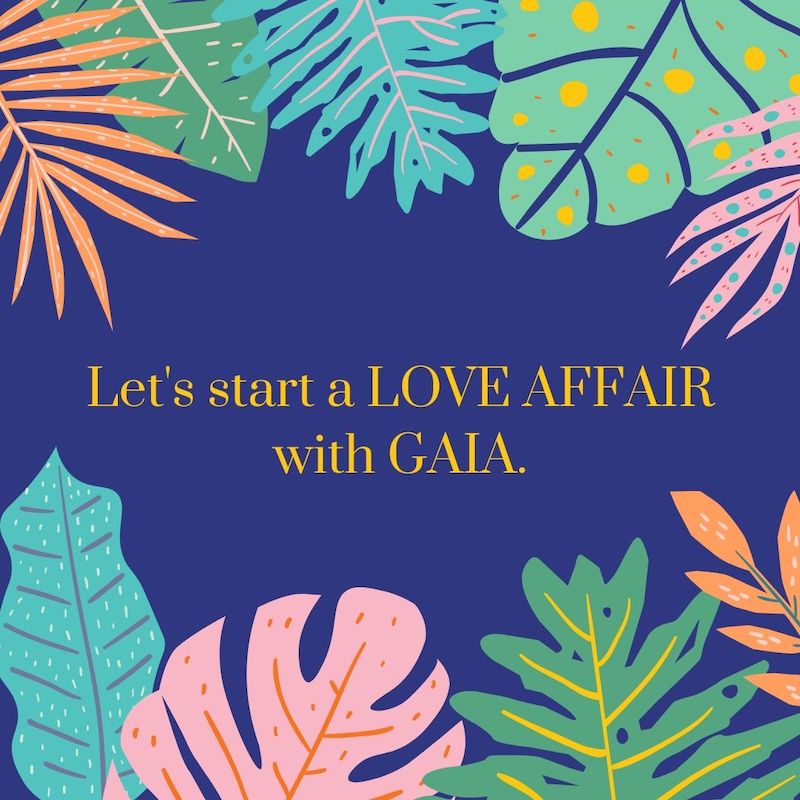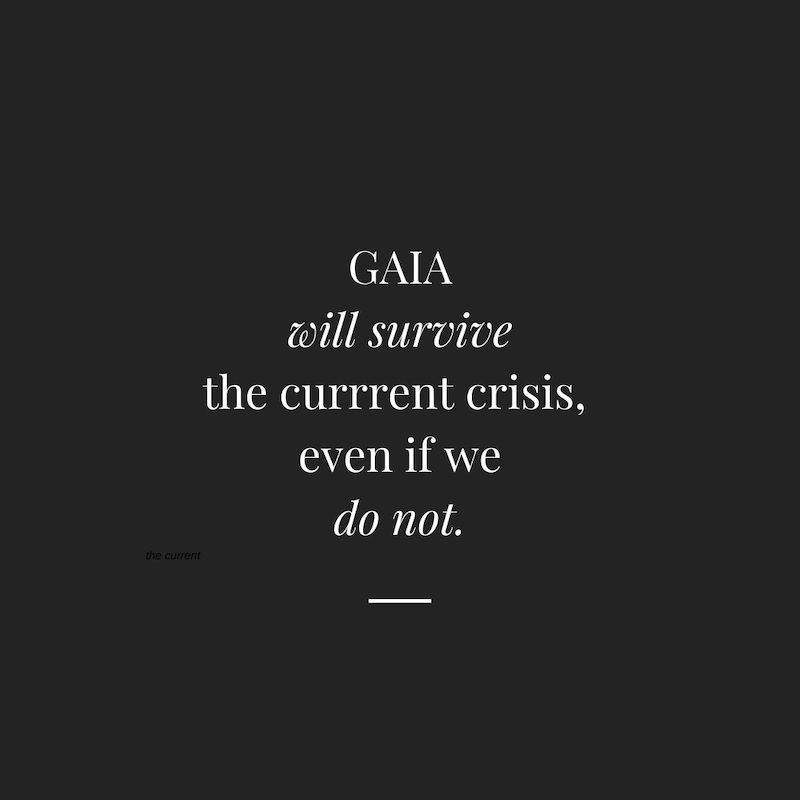
"A place for people of all backgrounds, any faith tradition or none, who love our Earth."

"To be truly green, we have to rid ourselves of the illusion that we are separate from Gaia in any way. We are as much a part of Her as anything alive, and we should feel tied, as in a good & loving marriage, until death us do part.”
–James Lovelock
• Meditations
• Ceremonies and activities
• A prayer for…
• Poems and words
• Images and sounds
• Learnings and discoveries
• Gaia of the Greeks
• Reflections
• Retreats & events
• Stories
• Lectio
and more...

Love Gaia
Starting a Love Affair with Gaia
Love Gaia is an initiative to help each one of us to cultivate a love affair with Gaia.
Our focus is all about cultivating a relationship with and love for our Mother Earth and all her expressions of life. It's a place for those of us who are setting out on this journey to come together in occasional online activities, and to discover new ways to honour, have wonder for, and express thanks for the ever-evolving miracle of our home planet's life. It's a place for appreciating the power and course of Gaia’s work, as well as for asking Her to show grace during times when we face what we see as environmental crises. It's a place for people of all backgrounds, of any faith tradition or none–everyone who loves our dear planet.
Where to start?
How can we begin to conceive who or what Gaia is? How might we get to know her, build a relationship with her? What sort of activities and approaches might help move us forward toward this end? Setting aside the arguments of some–that it's far too simplistic to think of our Earth and life attaching to her as a single organism–if we love our "Great Mother" and want to feel in relationship with Her, we have to start somewhere. Here, I share some of my beliefs and suggested starting points.
For me, simplistic and imperfect though it may be, I find the description of Gaia offered by James Lovelock to be particularly helpful. In this, we are each a part of Her. We all affect the way She evolves and takes action to self regulate and adapt to changing circumstances.
Undoubtably, Gaia will survive the imminent threat of climate change crisis, even if we humans do not. Yet, who is to say that a future in which there may be far fewer humans, perhaps humbled and no longer polluting the airs and seas at quite the rate our insatiable demands now insist, will not be a harmonious or happy one for our planet, even one that's ultimately meant to be? Or, while it may be hard for us to entertain, perhaps one positive outcome when the world emerges from the current Coronavirus (COVID-19) pandemic will be a greater consciousness of care among humanity for our shared home?
Gaia’s future can be influenced for good by humans, if we employ our intelligence responsibly. Her unstoppable and sometimes ferocious responses to the changing demands made on her may scare us. Ultimately, we may be persuaded to radically change our priorities and behaviours, even if for us to act responsibly on a global scale seems now to be a fantasy. I know that I'm far from being the perfect ecowarrior in this regard. While taking steps to tread lightly, I do occasionally eat meat, travel on aircraft, and am not constantly mindful of everything I might do to conserve natural resources. Making small changes to habit has been easy, making much bigger sacrifices remains a difficult challenge.
Gaia has power, and cycles of destruction and renewal are fundamental to the processes through which She involves. In geological time, rising and falling temperatures, the coming and going of species, and the shaping of continents are all a part of her history. What is different now, of course, is that humans have stepped up the pace of change to extraordinary levels, and exert an overwhelmingly imbalanced influence on the course that Gaia is taking. Our patterns of production, construction, destruction, extraction, farming, and consumption seem to function according to laws that are alien to Gaia’s, adding new variables for Her to navigate as She seeks to maximise Her potential for growth and fresh creation. The imposed methods of humankind may be clever and serve our current needs, but in the long game, Gaia will always find Her way, even if this means that the consequences for homo sapiens are dire.
When a volcano on a South Pacific island unloads its deadly sulphur, or fires rage close to heavily urbanised coastlines in Australia for months at a time, how can we find it in our hearts to love Gaia, to acccept that She is doing just what She needs to do?
We can plead for mercy, as when praying to a God, trusting that the combined force of our intention may persuade the Great Mother to tweak Her course, to avoid maximizing harm to humans and what is most important to us.
This is to acknowledge that what stirs within our hearts can be heard by the much greater whole of which we are apart, so to speak. This isn't something that everyone will hold as credible. However, it’s my belief that pleas or prayers of this sort are important; in fact, vitally so.
I don't know whether to think of Gaia as a god in Her own right as did the Greeks (and I hope soon to appreciate something of the divinity that was known to them), or to see Her as a part of a more powerful play of creation and evolution to which common notions of divinity can be attached. However, this comes close to my simple need to personify the unimaginably complex, conscious, breathing ecosystem of which I am a part.
It's tempting to picture Gaia as something or someone that I can have a relationship with, and therefore readily love. It’s not sufficient just to imagine myself in a spaceship, from which I might picture Her swirling atmosphere and patches of blue from above. This would be to separate myself from the body of which I am myself a part. Still, this helps to give perspective on the beauty and miracle of our Earth’s existence and Her place in space.
Space itself, and especially the vital life force of our Sun, also affects Gaia’s course. Perhaps in a small way, what happens on Earth also impacts on what happens in the Cosmos as a whole, especially within our near neighbourhood. Yet sticking to the idea of this home-based goddess as an entity that creates and evolves, generally I find it easiest to limit my attention to the planet in which we live.
If I embrace a tree, show kindness to a bird that's trapped in a thicket, or hold out my arms to honour and bless the sky above me, am I showing my love for Gaia, or merely to those manifestations or supported lifeforms of Hers that currently have my attention?
This isn't an easy question to answer. Certainly, I confess that I find it easier to express wonder and appreciation for the things that strike me as beautiful–a golden chrysantheum, for example, the sight of gently rolling hills, or the glory of a perfectly choreographed sunrise.
I find it much less easy to throw myself onto a stoney path and kiss the earth, or brave torrential rain falling from a blackened sky with quite the same enthusiasm. Again, I suppose, we have to start somewhere in cultivating our relationship. Perhaps in time, as I let go of my own need for comfort and familiarity, I will be able to embrace with the same appreciation the cold, the dark, the dirty, the fierce and the wild.
Yet as we all know, real love is to be found in the heart. This is where we may ultimately connect, at whatever level of consciousness we are currently capable of. This is where we can tune in to the primordial vibration, receive insights, communicate and feel one with everything that's around us. These are awesome moments when they occur–a palpable, real connection with a rock or a mountain, receiving wise counsel from a tree, a sharing of calm between creatures, a respect for giving space to a bush that doesn’t want to be crowded.
Through meditation and various practices, we may have glimpses of these blissful experiences. Deepening consciousness and tuning in to the knowing of the heart then seem to me to be pursuits that we shouldn't shy away from.
Still, it seems to me, showing appreciation for any single manifestation of Gaia’s work and majesty is worth celebrating. Anything that we see in the natural world around us might call out to us to stop, hold a moment in wonder, and be grateful. This is my starting point for getting to know my Great Mother.
How to start?
Given this desire to get to know Gaia, I wondered what practical actions we might take to achieve this end. The following are suggested starting points:
• Meditation–live sessions to be together (and recordings), suggested points for focus, music/image-accompanied, silent or guided approaches, just for holding on to some aspect of Gaia’s majesty, often just enjoying and absorbing what we receive. My weekly Vigil frequently focuses on this, often accompanied by bhajans and Native American music honoring the Great Mother.
• A Prayer For Being–my daily podcast regularly offers reflections and prayers on specific themes relating to our planet and our responsibility to Her. These may include appeals to Gaia where destruction threatens humans and the animals and habitats close to us. These are pleas or supplications to Gaia to show mercy, to consider changing course, to ask for forgiveness for ourselves and others who may have caused circumstances to come about.
• Gayatri Gaia–twice yearly extended meditations, focusing on the gifts of being on Earth, accompanied by the beautiful ministry of the Gayatri Mantra and rotating on-screen images of our awesome planet. I first ran this meditation over a 37 hour period on 1 January 2020,spanning the period between the first sunrise anywhere on Earth to the last sunset that day. A shorter meditation, combined with live images from Stonehenge and elsewhere, was held at the time of the Summer Solstice in June. I plan to repeat the meditation at New Year this coming January.
This is just a starting point, as a way of beginning to approach the effort to fall in love with Gaia. My hope in time is to establish a community of like-minded people, where we can jointly share and explore our relationship with the Great Mother.
Terminology
GAIA. Gaia is understood in various ways by different people. Here, without claiming this to be definitive, we use the term in the sense proposed by James Lovelock, i.e. that our Earth can be thought of as a single organism, comprising a complex mix of all its living and non-living parts.
THE GREAT MOTHER. This is another name for Gaia, which some may feel helps support the idea of having a personal relationship with her. It borrows from the idea that our Earth nurtures and gives birth to, or makes possible, everything that's vital for life.
About me
I'm no scientist, but am persuaded by Gaia Theory. This fits well with my belief that there is purpose in all life, and that we are all a part of an evolving, self-sustaining and self-creating whole. I believe, as Lovelock does, that Gaia may respond when we take action. My worldview and interfaith perspective convince me that this action can also include the intention of our hearts–our pleas and prayers. Doubtless, some will see me in the category of a misguided oddball or naive fool. But this is where I am.
I don’t believe that all actions of climate activists and green movements are wise, well-intended though many may be. However, this isn’t the place for debating and disagreeing on such matters. Everyone who loves Gaia and who wants to share in heart-led initiatives to honour and converse with Her is welcome here.
Email: clive@clivejohnsonministry.com
Phone: +44 (0)7956 942980
Skype: cliverj2
Follow me on social media:
